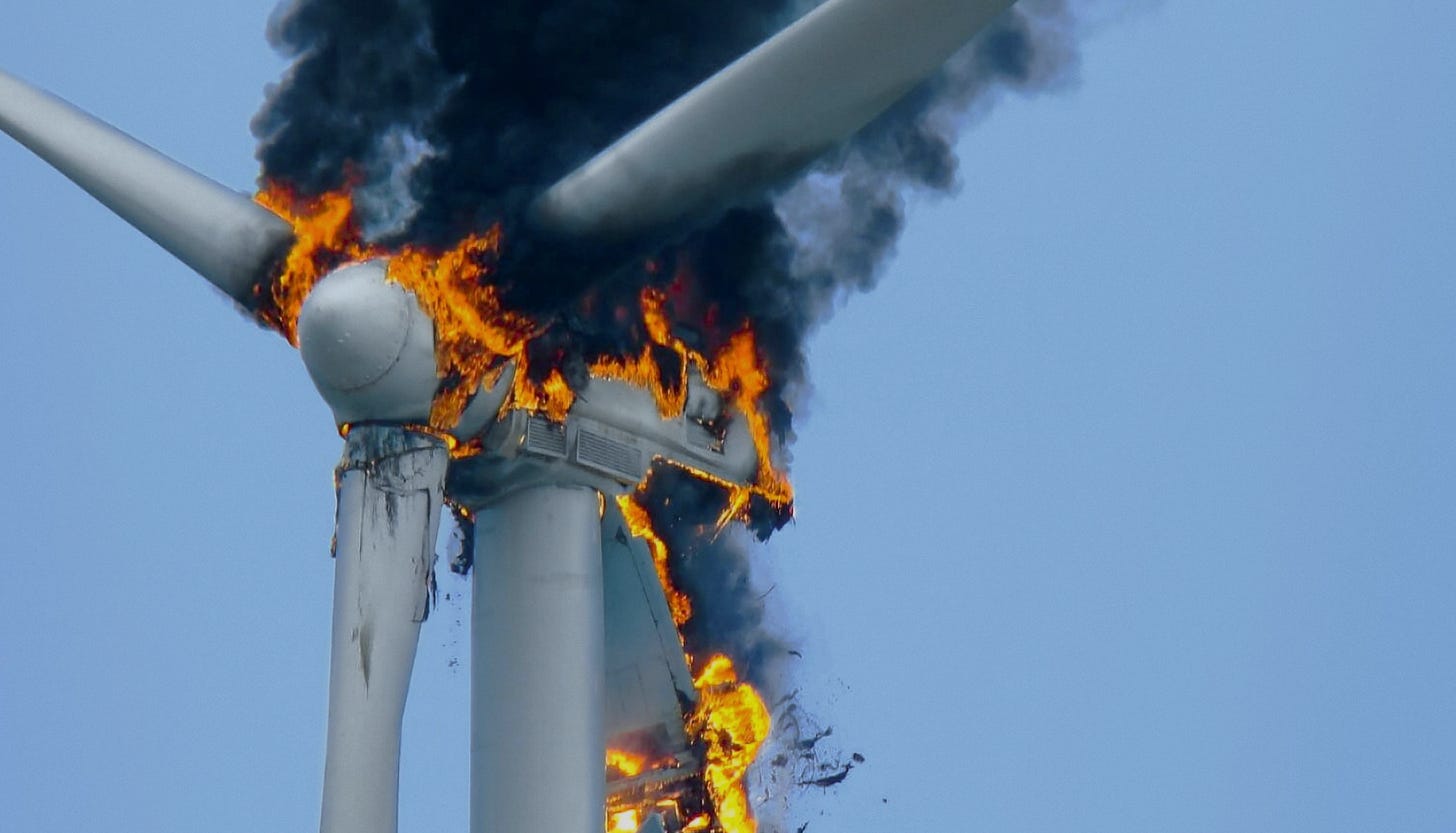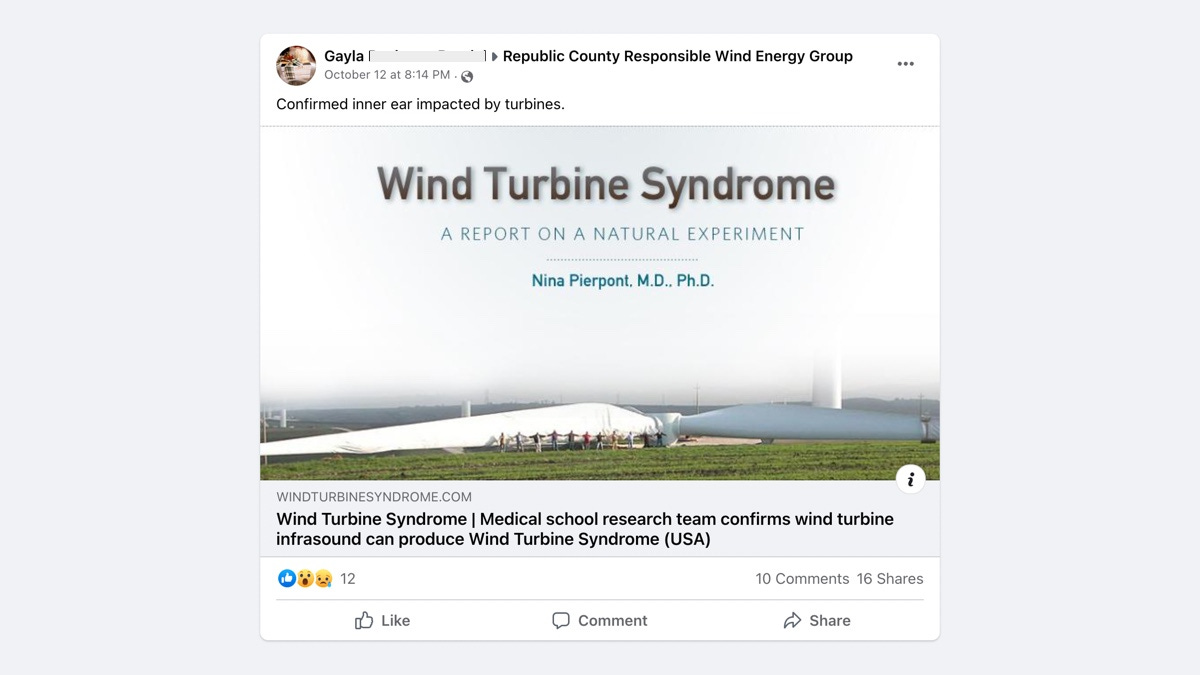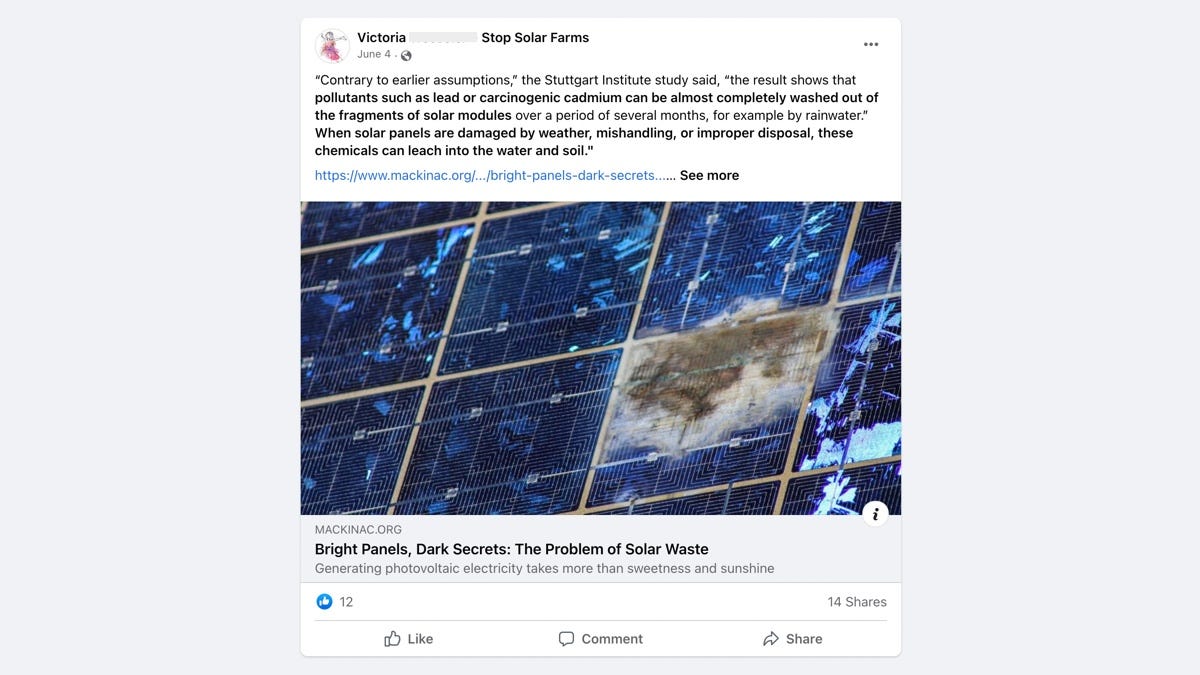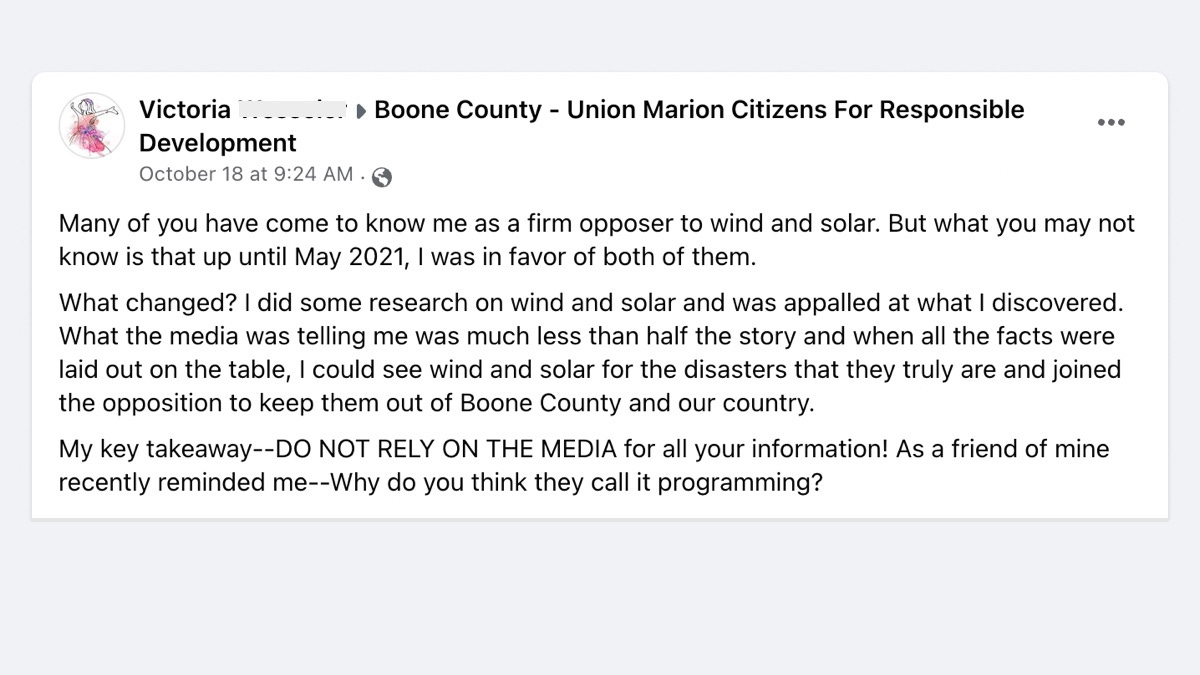I Joined 40 Clean Energy Opposition Groups on Facebook. Here's What I Learned.
To understand local opposition to solar and wind projects, it helps to see the misinformation spreading on Facebook
All across the country, local governments are restricting and banning clean energy projects. In my reporting on local opposition to solar and wind farms, I heard from multiple people that misinformation on Facebook is a major reason for this growing trend. To see some of it for myself, I joined about 40 anti-wind and solar groups with names like “Stop Industrial Solar Plants in Shelby County Indiana” and “Stop the Wind Turbines Harvey County Kansas.”
While virtually all experts agree that wind and solar energy are clean, safe, and affordable, many of the posts in these groups would lead you to exactly the opposite conclusion. To see why, let's start by looking at a post I saw a lot: The wind turbine on fire post.
In almost every group I saw stories, pictures, and videos of wind turbines on fire. This was surprising to me. I've been writing about clean energy for a while now and I've never heard of a wind turbine catching fire. And that makes sense if you look at the data.
According to a recent Department of Energy study, there were 40,000 turbines in America in 2017. By that point, there had only been 40 incidents. And no one was injured. By comparison, pollution from fossil fuels kills millions every year.
But in these groups, my feed was full of wind turbine accidents. Turbines blowing up, leaking oil, throwing ice at people's cars on the highway. The message was clear: wind turbines aren't safe.
Another argument I saw a lot was the idea that wind and solar are bad for human health.
In 2009, Nina Pierpont argued that infrasound from wind turbines causes headaches, nausea, and dizziness. She called it "wind turbine syndrome." In virtually every group I saw the same link to Pierpont's book. But there's a problem with this research. Since 2009, dozens of scientists have looked for the symptoms Pierpont wrote about. None have found any reason to believe turbines are bad for human health.
I saw similarly misleading arguments against solar. Multiple groups featured long posts about how toxic materials in solar panels would eventually make it into their town's water supply. Again, there's no evidence for solar panels contaminating a community's water supply.
The problem is that this misinformation is having real world impacts. It's changing voters' minds. It's changing local policy. And it's slowing down the transition from fossil fuels to clean energy.
Victoria in Boone County, Indiana is an example of someone who used to support clean energy. But then she read about the fires, health risks, and toxins. Now she's not only against wind and solar, she's an evangelist for the cause, changing the minds of those around her.
These groups, led by passionate activists like Victoria, have succeeded at getting their local governments to pass policies like wind and solar bans, moratoriums that delay projects, and setbacks that make it impossible to build clean energy.
Others, like Crawford Anti-Wind—a group in rural Ohio—have taken their fight to the ballot box. Here's what the "Facts" page on their website looks like:
According to a recent Columbia Law School study, as of March 2022, wind and solar projects were delayed by local opposition in 49 states. By that time, local governments in 31 states had passed restrictive policies.
In order to meet our climate targets, we're going to need to build a huge amount of clean energy. Unfortunately the misinformation spreading throughout these Facebook groups is making that already daunting task much harder.









I'm seeing the same coordinated efforts against EVs.
I am doing some research for the USDA on rural America specifically regarding agrivolatics and the objections to it. If you have a list of the communities you joined I would love to see that. Feel free to email me. Regardless, great post!